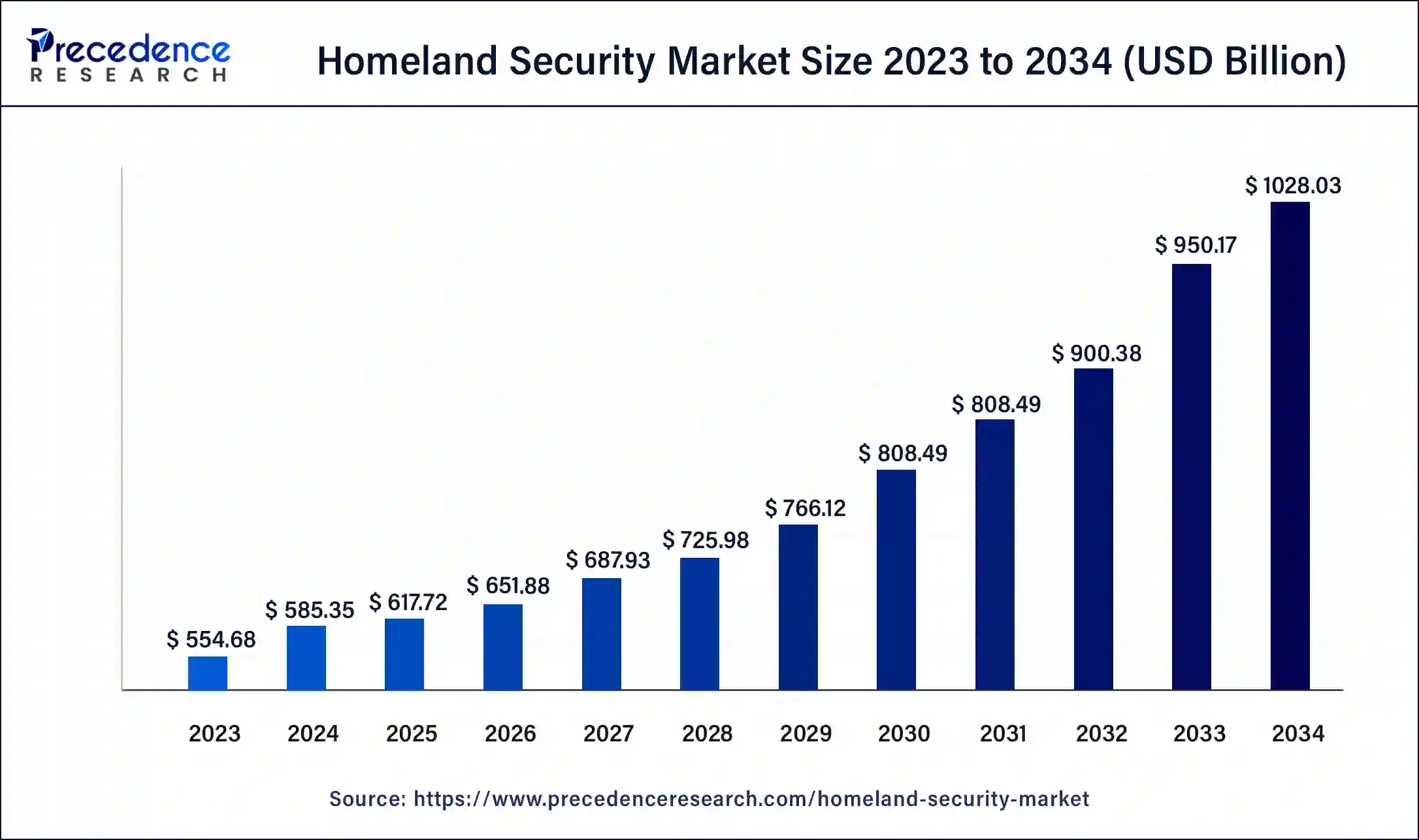- North America dominated the market with the largest market share of 36% in 2023.
- By type, the critical infrastructure security segment held the largest market share.
- By technology, the AI-based solutions segment has captured the largest market share of 36% in 2023.
- By end-use, the public sector segment held the largest share of the market in 2023.

Get a Sample: https://www.precedenceresearch.com/sample/4006
One of the key growth factors contributing to the expansion of the homeland security market is the growing sophistication of security threats. With the proliferation of cyberattacks, terrorism, organized crime, and natural disasters, governments are investing heavily in upgrading their security infrastructure. This has led to increased spending on surveillance systems, biometric identification technologies, threat detection systems, and emergency response solutions.
Homeland Security Market Scope
| Report Coverage | Details |
| Growth Rate from 2024 to 2033 | CAGR of 5.53% |
| Global Market Size in 2023 | USD 554.68 Billion |
| Global Market Size by 2033 | USD 950.16 Billion |
| U.S. Market Size in 2023 | USD 149.76 Billion |
| U.S. Market Size by 2033 | USD 256.54 Billion |
| Base Year | 2023 |
| Forecast Period | 2024 to 2033 |
| Segments Covered | By Types, By Technology, and By End-use |
| Regions Covered | North America, Europe, Asia-Pacific, Latin America, and Middle East & Africa |
Homeland Security Market Dynamics
Regionally, North America dominates the homeland security market, owing to its strong focus on counterterrorism efforts, border security initiatives, and advanced technological capabilities. The United States, in particular, accounts for a significant portion of global homeland security expenditure, driven by its extensive defense budget and comprehensive security measures. However, other regions such as Europe, Asia Pacific, and the Middle East are also witnessing substantial growth in their homeland security markets, fueled by rising security concerns and infrastructure development.
Several drivers propel the growth of the homeland security market. One such driver is the increasing adoption of artificial intelligence (AI) and machine learning (ML) technologies to enhance threat detection and response capabilities. AI-powered analytics enable security agencies to analyze vast amounts of data in real-time, identify potential threats, and take proactive measures to mitigate risks. Additionally, the integration of IoT (Internet of Things) devices and sensors into security systems enables seamless communication and interoperability, improving overall situational awareness.
Moreover, the rise of smart cities and the need to secure critical infrastructure against cyber threats and physical attacks drive market growth. Governments worldwide are investing in smart technologies to improve urban management and enhance public safety. This includes the deployment of advanced surveillance cameras, intelligent transportation systems, and smart grids, all of which require robust security measures to protect against potential vulnerabilities.
Despite the opportunities presented by technological advancements and increased government spending, the homeland security market faces several challenges. One of the primary challenges is the complex nature of security threats, which are constantly evolving and becoming more sophisticated. This necessitates continuous innovation and investment in research and development to stay ahead of emerging threats.
Furthermore, concerns regarding privacy and civil liberties pose ethical dilemmas for security agencies implementing surveillance and monitoring technologies. Balancing the need for security with individual rights and freedoms remains a contentious issue, requiring transparent policies and oversight mechanisms to address public concerns.
Read Also: Cancer Biologics Market Size to Touch USD 214.59 Bn by 2033
Recent Developments
- In February 2023, the Justice and Commerce Departments jointly announced the establishment of the Disruptive Technology Strike Force.
- In March 2023, the Biden-Harris Administration unveiled the National Cybersecurity Strategy.
- In March 2024, Alpha Omega declared an enhanced commitment to National Security, Climate Science, and Foreign Affairs.
Homeland Security Market Companies
- Elbit Systems Ltd.
- Teledyne FLIR LLC
- General Dynamics Corporation
- L3Harris Technologies, Inc.
- L-3 Communications Holding, Inc.
- Magal Security Systems Ltd.
- Raytheon Technologies Corporation
- Safran
- ThalesUnisys
Segments Covered in the Report
By Types
- Aviation Security
- Maritime Security
- Border Security
- Critical Infrastructure Security
- Cyber Security
- CBRN Security
- Mass Transit Security
- Others
By Technology
- Recognition and Surveillance Systems
- AI-based Solutions
- Security Platforms
- Others
By End-use
- Public Sector
- Private Sector
By Geography
- North America
- Europe
- Asia-Pacific
- Latin America
- Middle East and Africa
Contact Us:
Mr. Alex
Sales Manager
Call: +1 9197 992 333
Email: sales@precedenceresearch.com
Web: https://www.precedenceresearch.com
Blog: https://www.expresswebwire.com/
Blog: https://www.uswebwire.com/
